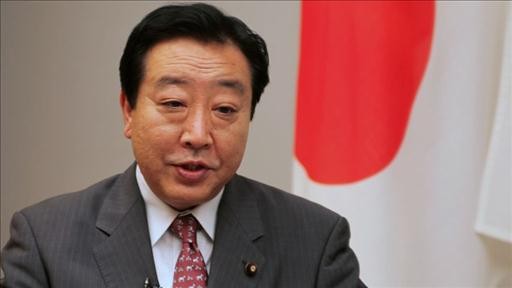(VOVworld) – The Japanese political scene is experiencing new challenges. In face of the economic slowdown, and unceasing territorial tension, Prime Minister Yoshihiko Noda’s decision to dissolve parliament on November 16 at the earliest and a general election scheduled for December has posed new difficulties to Japan. The public predicts that an undercurrent in the Japanese political scene is likely to unseat Mr. Noda from power.

Japanese Prime Minister Yoshihiko Noda
|
On November 13, Prime Minister Yoshihiko Noda announced to dissolve parliament as early as Friday and to call an election next month. Major news media reported that Mr. Noda will call a general election on December 16, or possibly as late as January 20. Prime Minister Noda declined to discuss election date during a parliamentary session. Thus Mr. Noda will not wait until next September when the four-year term of the current parliament expires. Analysts said Mr. Noda will face difficulties to get his DPJ re-elected in the coming general election in the face of widespread disappointment with the DPJ’s performance since it ruled the country three years ago.
Following the announcement, many DPJ congressmen have resisted Mr. Noda’s plan to dissolve the Lower House. In a latest development, with a view that the DPJ could lose power soon due to plunging support for the Cabinet, Chairman of the Lower House’s Foreign Affairs Committee, Yoshikatsu Nakayama, openly called on Mr. Noda to resign if he calls a general election at an early date. DPJ General Secretary Azuma Koshiishi has led the resistance to an early dissolution of the Lower House.
Mr. Noda previously said he would make appropriate decision in suitable conditions. Observers said his announcement to dissolve the Lower House now aims to avoid a vote of confidence for the cabinet initiating by the opposition party. The Prime Minister concerns that if the cabinet can’t get through the vote of confidence, it will have to resign without an approval to double the consumption tax to 10%. In a Q&A session at the Upper House controlled by the opposition, Mr. Noda said the cabinet resigning means he rules out his responsibility of a Prime Minister. He called on the senators to cooperate to adopt key bills during the on-going parliament session. He stressed the need to implement measures to stimulate the economy, which is contracting due to the yen appreciation and the world's stagnant economies.
Mr. Noda is facing great challenges. Many DPJ congressmen have resisted the Prime Minister’s decision and support for the Japanese government has reduced to below 20%, partly due to Mr. Noda’s plan to raise tax. The Asahi newspaper published the results of its latest poll that the disapproval rate for the Cabinet rose from the previous record of 59% in October to 64% in November. The support rate for the Prime Minister was at only 18%.
Mr. Noda is possible not to win sufficient votes of confidence in the coming election. This is not the first time the Japanese political circle facing a reshuffle. Over the last 5 years, tax raising or additional budget for national reconstruction have been the main reasons for Japanese Prime Ministers to leave power. If Mr. Noda can’t overcome this difficult period, the Japan may have the 7th Prime Minister in 5 years. There are more concerns over Japan’s status and influence on the global politico-economic stage.